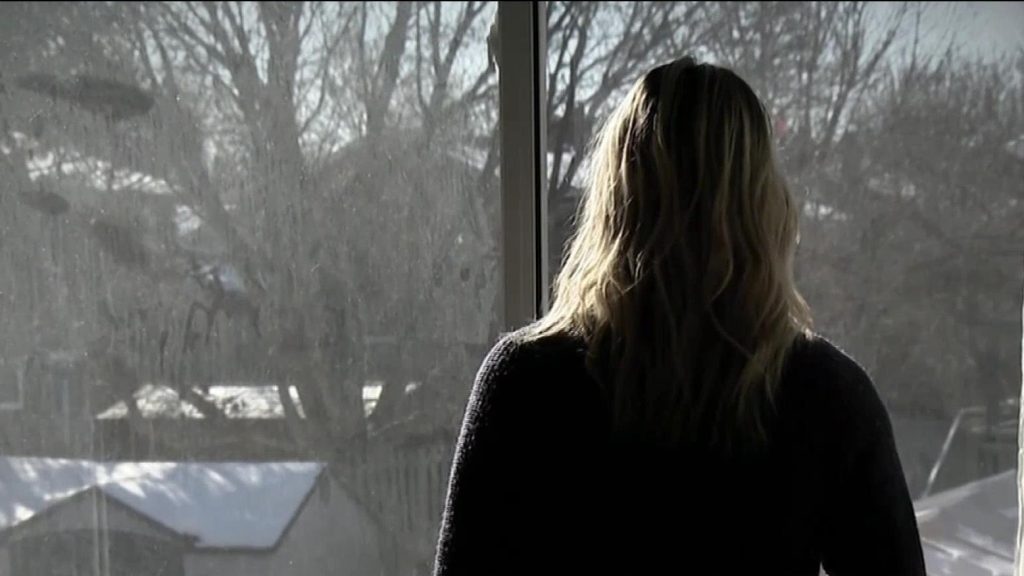Charron, De Grasse lead Canada in rainy trip down the Seine as Paris Olympics open

Posted July 26, 2024 1:09 pm.
Last Updated July 26, 2024 4:51 pm.
Olympic champions Maude Charron and Andre de Grasse held the Maple Leaf high as Canada’s Olympic delegation sailed its way into the Paris Games.
The flag-bearers led a delegation of nearly 200 athletes that represented Canada in a scenic, if rainy, trip down the Seine River as part of the Games’ unique opening ceremony.
Rain began steadily beating down as the boat carrying Canada’s athletes made its way through the parade.
The Canadians gamely stood on the top level of their vessel waving at the crowd despite the increasing downpour.
More than 200 competing countries entered the Games on boats, passing landmarks such as the Eiffel Tower and Notre Dame before ending their journey at the Trocadéro.
Canada shared a boat with Chile and China, but the Canadian athletes were easy to spot in bright-red Lululemon bomber jackets.
“Over the next two weeks, more than 330 athletes will represent Team Canada, competing in 28 sports — from swimming, to track and field, to table tennis,” Prime Minister Justin Trudeau said in a statement. “With an unmatched display of athleticism, sportsmanship, and talent, our athletes will cement their legacies and inspire the next generation of Canadians.
“A special congratulations to Maude Charron and Andre De Grasse on being named Team Canada’s Opening Ceremony flag-bearers. You’ve both won gold medals for our country and now you’ll be carrying our flag forward.”
Trudeau did not make the trip to France. Instead, Sport Minister Carla Qualtrough led the Canadian diplomatic delegation at the ceremony.
The show started with spectators watching a video on giant screens mounted along the Seine where various people carried the torch through Paris.
Cheers were heard along the banks as a boat emerged on the water, with the torch being held by a young boy. As the boat passed under a bridge, it erupted in red, white and blue clouds.
A cheer went up from the dignitaries and special guests in the Trocadéro when a boat carrying the Refugee Olympic Team was shown onscreen.
Fans, many covered in plastic rain ponchos, braved inclement weather to come out in droves for the celebration after the day got off to a rocky start when France’s high-speed train network was targeted Friday morning by co-ordinated disruptive acts, including arson and graffiti.
Outgoing French Prime Minister Gabriel Attal said the actions had “a clear objective” of blocking the high-speed train network.
But later, thousands of people made their way through heavy security barricades more than three hours before Friday’s ceremony began to find a spot to take in the spectacle.
Stands along the river slowly filled about two hours before the ceremony, with many fans holding umbrellas to keep dry. Police sirens and whistles blared in the distance, another sign of the ever-present security that will permeate the city throughout the Games. Measures included closing the Charles de Gaulle Airport and restricting airspace above the festivities.
Many spectators dressed in the red, white and blue of the French flag or had the image painted on their faces. Others waved their own country’s banner from the stands.
On the water below, tour boats and floating restaurants moored to the river’s banks played host to elaborate parties.
The rain made for some bizarre scenes at the show combining prerecorded and live performances: a stiff upper-lipped pianist played on even as small puddles formed on his grand piano. A breakdancer flipped her moves on the sheen of a rain-drenched platform. Some athletes in Bermuda-style colorful shirts looked dressed for the beach, not a deluge.
As global audiences tuned in, Paris put its best foot forward — quite literally, with a spectacular Olympic launch that lifted spirits and joyous French cancan dancers featured early on. A humorous short film featured soccer icon Zinedine Zidane. Plumes of French blue, white and red smoke followed. And Lady Gaga sang, in French, with dancers shaking pink plumed pompoms, adding a cabaret feel to what is expected to be a more than three-hour show.
French-Malian pop star Aya Nakamura, the most listened-to French-speaking artist in the world, sang her hit “Djadja” accompanied by the orchestra of the French Republican Guard. She emerged from a pyrotechnic display, wearing an all-gold outfit as she performed with a Republican guard band of the French army.
Merging the elements of opera and rock metal music on the global stage, band Gojira brought their progressive and technical death metal style, while singer Marina Viotti inserted her mezzo-soprano vocals.
A singer resplendently dressed in the French colors of blue, white and red belted out France’s national anthem, La Marseillaise, from the iron- and glass-domed roof of the Grand Palais, the venue for fencing and taekwondo. In the VIP section further along the river, French President Emmanuel Macron and others stood as she sang.
The ceremony celebrated women, including 10 golden statues of female pioneers that rose from giant pedestals along the river. Among them was Olympe de Gouges, who drafted the Declaration of the Rights of Women and the Female Citizen in 1791 during the French Revolution. She campaigned for the abolition of slavery and was guillotined in 1793.
The statues will be offered to the city after the ceremony. The Paris Games aim to be the first with equal numbers of men and women competing.
With the ambitious ceremony, the stakes for France were immense. Dozens of heads of state and government were in town, and the world was watching as Paris turned itself into a giant open-air theater. Along the Siene, iconic monuments became stages for dancers, singers and other artists.
The sprawling ceremony gave organizers bigger crowds to transport, organize and safeguard than would have been the case if they’d followed the example of previous Olympic host cities that opened with stadium shows.
With files from The Associated Press








